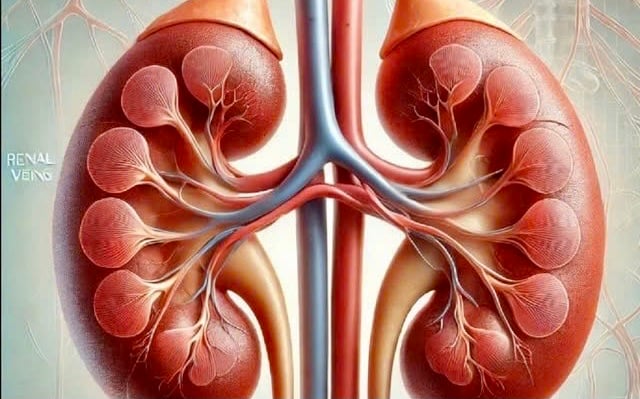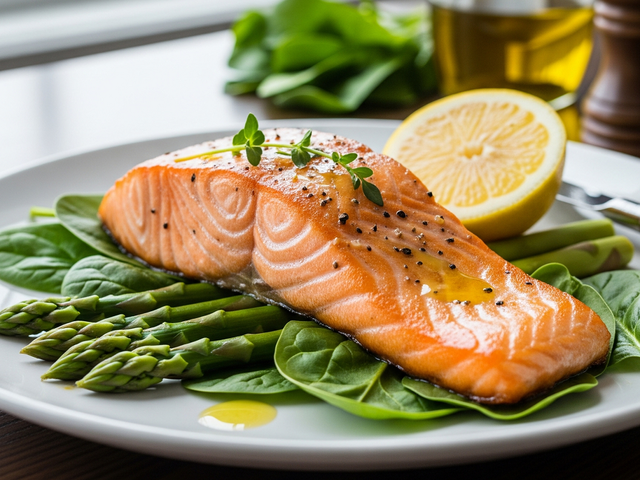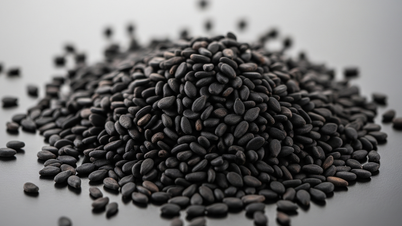Starting a new day with health news , readers can also read more articles: Doctors show how to use air conditioners to be good for health; Strange way to save cancer patients' lives without using drugs ; Signs when the body lacks fat...
Doctor: The unexpected link between heat and kidney damage
People often think of heatstroke as affecting the brain and energy levels, but few people realize that heatstroke can cause kidney damage.
When body temperature rises in heatstroke, the patient is at risk of multiple organ failure and kidney damage .
Here, Dr. Safia Livingston, a nutritionist at Minimal Access Smart Surgery Hospital in India, explains the link between heatstroke and kidney damage.
Heatstroke is characterized by central nervous system dysfunction, when the body's core temperature rises above 40°C, while normal core temperature is maintained at around 37°C, explains Livingston.
People often think of heatstroke as affecting the brain and energy levels, but few people realize that heatstroke can cause kidney damage.
Illustration: AI
In case of intense physical activity or being in the sun, you should adjust your water intake accordingly. For every 30 minutes in the sun or during vigorous physical activity, you should drink an extra glass of water to replace lost water and electrolytes.
When the body temperature rises during heatstroke, the person is at risk of multiple organ failure and systemic inflammatory response syndrome. This can lead to acute kidney injury. In some cases, it can even lead to chronic kidney disease.
According to a 2021 study, up to 25-35% of cases of exertional heatstroke will develop into acute oliguric renal failure (kidney failure with little urination) . The next part of this article will be on the health page on June 4.
Signs of body fat deficiency
Fats, along with carbohydrates and proteins, are the three main groups of nutrients that help maintain many important functions of the body. Strict diets can easily push the body into a state of lacking essential fats.
Fat is not only one of the main sources of energy but also helps maintain endocrine function, protect cells, support the immune system and absorb fat-soluble vitamins such as A, D, E, K.
Salmon is not only rich in protein but also beneficial fats.
Photo: AI
When there is a lack of fat, the body may have the following warning signs:
Constant fatigue. Feeling tired and lacking energy is one of the signs that your body is not getting enough fat. Fat provides a rich source of energy, helps maintain the functioning of the nervous system and many other functions.
In particular, omega-3 fatty acids are essential in supporting brain function and reducing inflammation. Omega-3 deficiency leads to fatigue, sleep disturbances and impaired cognitive function.
Joint pain is also a sign of fat deficiency . Joint pain is another consequence of a lack of fat, especially omega-3. This is due to their anti-inflammatory role. Some research evidence suggests that omega-3 deficiency can lead to arthritis and increase the risk of rheumatoid arthritis. The next content of this article will be on the health page on June 4 .
Breakthrough: A strange way to save cancer patients' lives without using drugs
At the American Society of Clinical Oncology Annual Meeting held in Chicago from May 30 to June 3, doctors were excited about a new breakthrough in cancer treatment.
45,000 cancer experts attended the conference, hearing reports on the latest research breakthroughs, often new drugs.
But this year, people are excited about an unusual, non-drug intervention: the power of exercise.
Patients given an 'exercise prescription' have a 28% lower risk of cancer recurrence
Illustration: AI
Everyone knows that exercise is good for your health, but surprisingly, there has never been a randomized controlled trial – the gold standard for reliability – that looks at whether exercise improves cancer survival. So Dr. Christopher Booth and colleagues set out to answer this question.
Colon cancer is the most common type of bowel cancer, killing many people each year. Dr Christopher Booth's pioneering 16-year study specifically looked at stage 2 or 3 colon cancer patients treated with surgery and chemotherapy.
The results found that patients who were given an "exercise prescription" and helped by a trainer to increase their activity levels had a 28% lower risk of cancer recurrence and a 37% lower risk of death within 8 years . Start your day with health news to see more of this article!
Source: https://thanhnien.vn/ngay-moi-voi-tin-tuc-suc-khoe-nguyen-nhan-bat-ngo-gay-ton-thuong-than-185250603235407841.htm





![[Photo] Nearly 104,000 candidates in Hanoi complete procedures to take the 10th grade entrance exam](https://vphoto.vietnam.vn/thumb/1200x675/vietnam/resource/IMAGE/2025/6/7/7dbf58fd77224eb583ea5c819ebf5a4e)























![[Photo] President Luong Cuong works with Hung Yen and Thai Binh Provincial Party Committees on implementing Resolution of the 11th Central Conference, 13th tenure](https://vphoto.vietnam.vn/thumb/1200x675/vietnam/resource/IMAGE/2025/6/6/127b735d2761484d81dcee0d7725a25b)




























































![[OCOP REVIEW] Tu Duyen Syrup - The essence of herbs from the mountains and forests of Nhu Thanh](https://vphoto.vietnam.vn/thumb/402x226/vietnam/resource/IMAGE/2025/6/5/58ca32fce4ec44039e444fbfae7e75ec)










Comment (0)